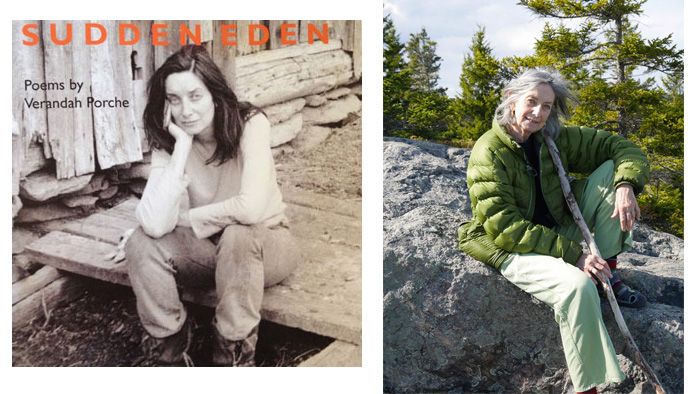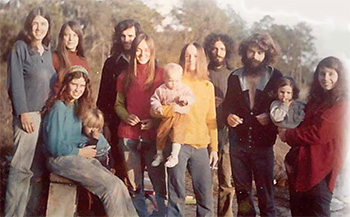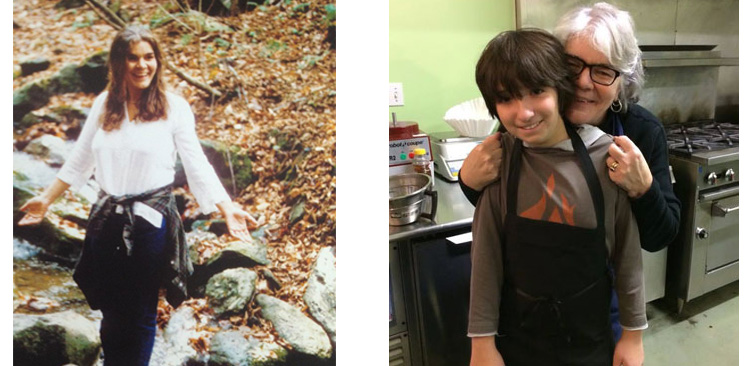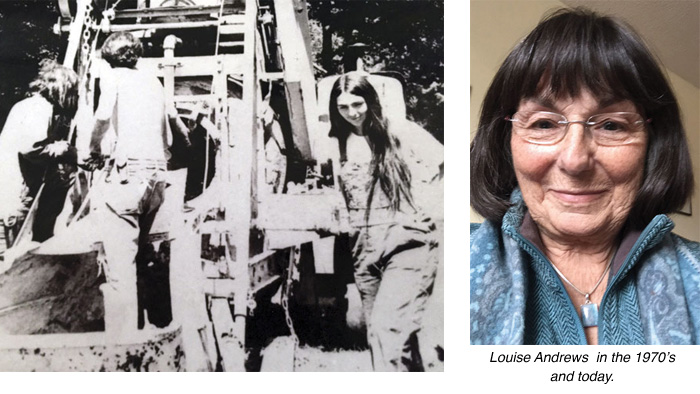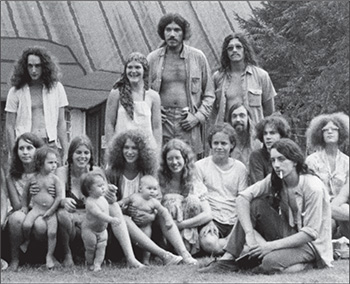| Women of the Counterculture in 1970s Vermont | ||||||||
| by Cyndy Bittinger | ||||||||
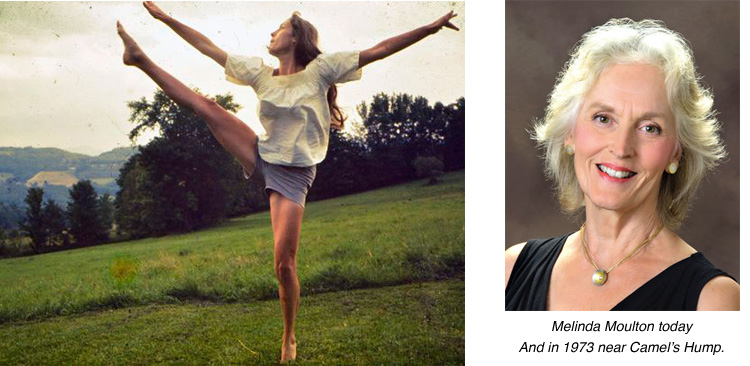 |
||||||||
“It was a turbulent era, in which we rejected the status quo of our childhoods, and searched for—or created—new definitions of community.” So said Liz Blum in her Vermont Public Radio commentary about being a young woman in the 1970s. As part of women’s history month, Blum, along with commentators Verandah Porche and Melinda Moulton, wrote and recorded their experiences as participants in the back-to-the-land movement. Vermont, made more accessible by Interstates I-89 and I-91, was the beckoning country for these women, who were part of a wave of 100,000 young people, migrating to Vermont from 1967 to 1973. With cheap land and no formidable building codes, it was relatively easy to throw up a geodesic dome and move in.
Blum, now the county chair of the Vermont Progressive Party, was named for labor activist and feminist Elizabeth Gurley Flynn. She says, in her commentary, that she saw herself as a "revolutionary part of a global liberation struggle. We were interested in sexual liberation and changing our roles at home and in the world." Porche, a poet, performer, and essayist from Guilford, remembers coming to Vermont, at age 23. She and her companions arrived "fresh from riots in Washington, DC, we could see a future in the open fields, woods, rickety house, barn, and outbuildings." She and some 10 others formed the commune Total Loss Farm, named on a whim. Moulton, now the CEO of Main Street Landing in Burlington, arrived in 1973 with the father of her 1-year-old child, seeking to establish a self-sufficient homestead. Forty-four years later, they still live in the stone house they built by hand near Camel's Hump. |
||||||||
However, the back-to-the-land movement meant going very far away from the middle-class ideal of a good education, a good job, and upward mobility. The new settlers rejected materialism and chose voluntary poverty—farming and building homes and taking care of children without amenities. They got minimal jobs to keep the communes afloat. Manual work had to be done, and each commune determined how to structure that. Women assumed new leadership roles in projects to promote "renewable energy, alternative schools, art collectives, community gardens, farmers' markets, food coops, day care centers, and women's networks," as authors Michael Sherman, Gene Sessions, and P. Jeffrey Potash highlighted in their book Freedom and Unity: A History of Vermont, discussing this era of Vermont history. Yet personal exploration was also part of the experience. By eschewing the norms of the national society, they could set up new roles for women more easily than their sisters back in traditional settings. The communes provided female solidarity and consciousness raising, which quickly energized the young in cities across the country where the personal often became political.
Moulton and Porche joined Euan Bear, Bridget Downey-Meyer, and Louise Andrews for a roundtable discussion about their experiences in the 1970s counterculture in late March. The discussion, presented by the Vermont Commission on Women (VCW) in partnership with the Vermont Historical Society, was held at the Vermont History Center, Barre, in late March. Moderated by Amanda Gustin, public program director at the Vermont Historical Society, the talk was live-streamed and recorded and can be heard online (go to http://women.vermont.gov/node/741 and click the link). Vermont Woman newspaper later interviewed Bear, Downey-Meyer, and Andrews. Downey-Meyer was a member of the collective Mount Philo Inn from 1969 to 1973, in Charlotte, Vermont. She came to Vermont at age 23 as a single mother and worked at Adult Basic Education in Burlington. Her colleagues in the antiwar movement bought the inn, and she lived there and in other group housing situations for years. Most were Vermonters, and the women were trying "not to live lives determined by men."
Bridget Downey-Meyer in Charlotte, Vermont, early '70s and today at the Chittenden Food Shelf. "We spent more time... on our personal evolution," she said. "It was exhilarating!" She established and worked at the People's Free Clinic for years. Andrews was a member of Earthworks, a commune in Franklin, Vermont. She came to Burlington from Madison, Wisconsin, with a husband who would teach at UVM and two small children. Her family joined three other couples to form a farming commune without any farming background.
It was "all new and wonderful" to her. Their commune did try to "equalize the roles of men and women" with a sharing of chores and farming with horses. Their focus was on preparing vegetables from their garden for meals and using animals for food as well. In summer the whole enterprise could swell to 35 or 40 people. Appliances were not used, and television and radios were not turned on. They also joined with other communes to form a kids' collective to teach their children in an alternative setting. And they organized female conferences to exchange ideas. They were seeking a new culture and alternative energy sources. Bear went to Colby College in Maine. After coming out as a lesbian, she helped form the second gay student organization in Maine in 1974. She then traveled to Vermont in 1977 with friends and joined the Red Bird collective in Burlington. As she said, she wanted “to find a safe place and a way to be real in the world.” She helped build a house without power tools and camped out on the land. She and the others had no amenities, such as running water or electricity. In the summer there would be 20 to 25 women working in crews. She built a raised fireplace and learned vegan cooking.
After the collective split up, she joined with others to write CommonWomon, Vermont’s first women’s newspaper, and met her partner, whom she has been with for 37 years. She went on to write and edit for newspapers and small presses.
|
||||||||
|
Cyndy Bittinger, writer and historian, teaches Vermont history and women’s history at the Community College of Vermont. Her books include Grace Coolidge: Sudden Star and Vermont Women, Native Americans and African Americans: Out of the Shadows of History.
|
|||||||
